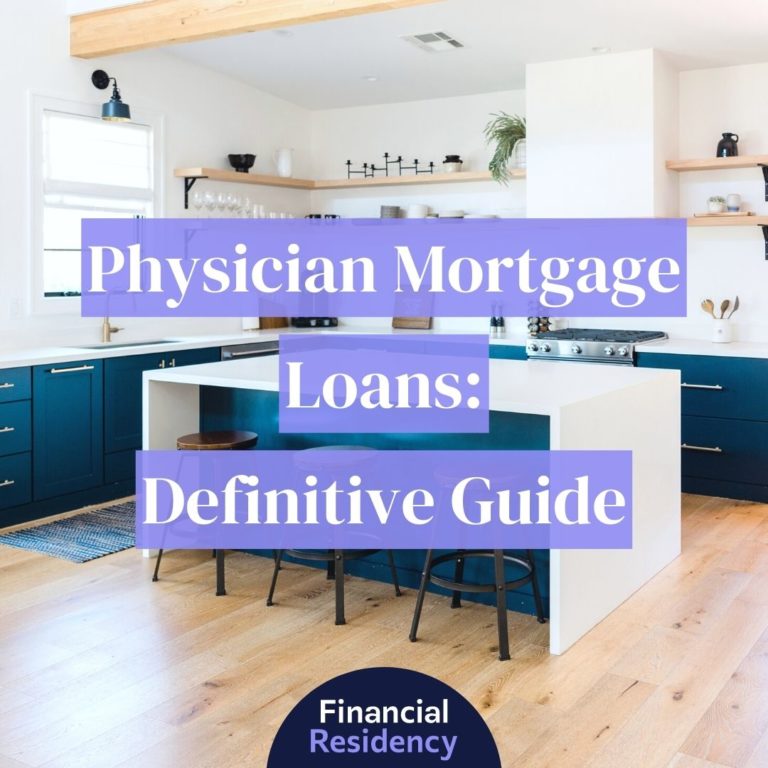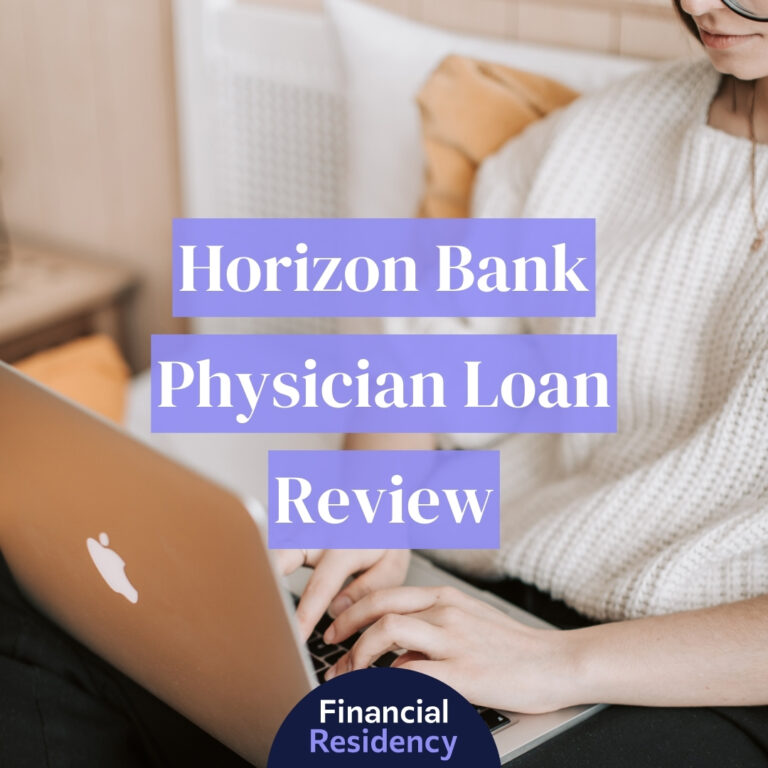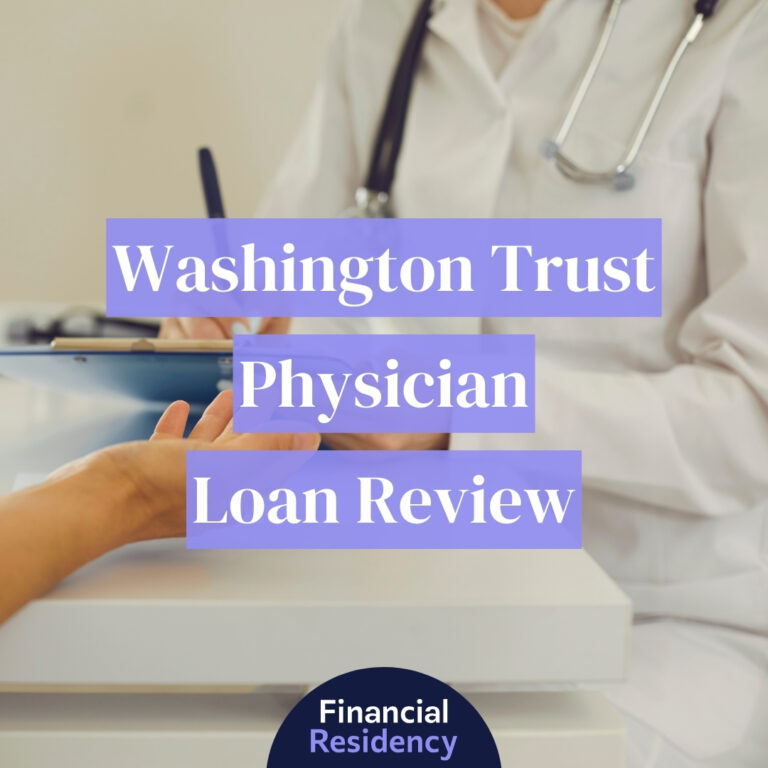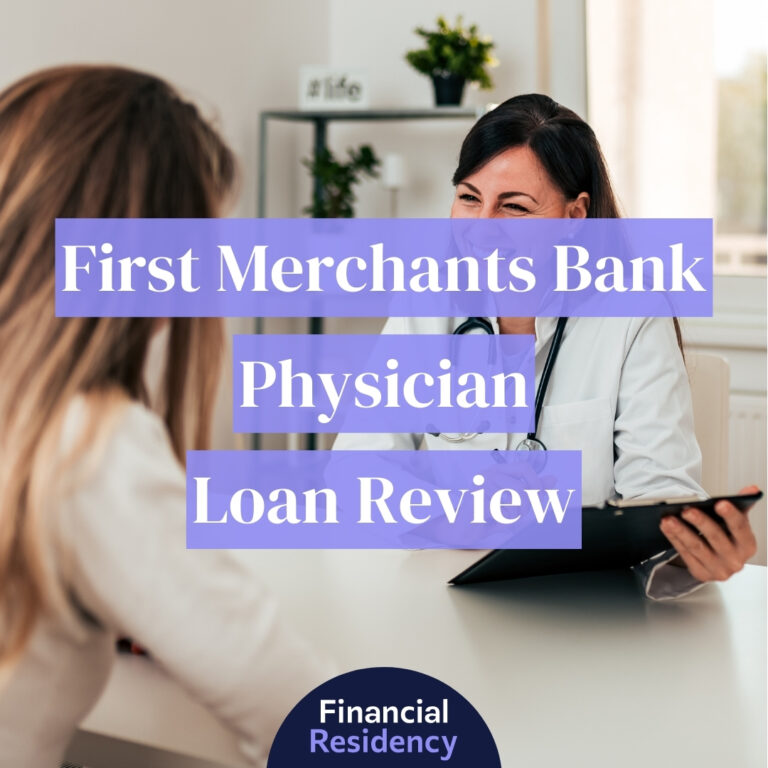Are you planning a new home purchase or refinance in Nebraska soon? The best physician loans in Nebraska can help you make your dreams a reality.
There are nearly 6,000 practicing physicians practicing in the state and there are countless opportunities to open a private practice, become more experienced in your specialty, or address the important healthcare shortages in rural areas.
Nebraska offers its 1.9 million residents a Midwestern lifestyle centered mainly around agriculture and a passion for college sports. Nebraska is much more than wide-open spaces and unassuming friendly people. It’s also home to an abundance of opportunities in the medical field.
A physician home loan can help you put down permanent roots that allow you to connect with the population and grow in your field.
If you’re ready to find the best physician loans in Nebraska for you and your family, then turn to one of our pre-vetted lenders to guide you through this next step.
9 Best Nebraska Physician Home Loan Lenders
Here are the top physician mortgage loan lenders in NE:
- Alerus Financial
- BMO Bank
- Citizens Bank
- Evolve Bank & Trust
- First National Bank of Omaha
- Flagstar Bank
- Huntington Bank
- UMB Bank
- U.S. Bank
Discover The Best Lenders in Nebraska Answer just a few questions about your career, where you're buying, and how much you want to borrow. Our service will then show you the exact programs you're eligible for from vetted physician loan specialists who will guide you through every step of the process – obligation-free!
1. Alerus Financial
- BBB Grade: A+
- JD Power Score: N/A
Alerus Financial offers its physician loan program to medical professionals at any stage in their careers. Compared to the typical physician loan program in Nebraska, Alerus’s financing options are more inclusive of various degrees and specialties.
The following medical designations are eligible:
- Medical Doctor (MD)
- Doctor of Osteopathic Medicine (DO)
- Doctor of Dental Surgery (DDS)
- Doctor of Dental Medicine (DMD)
- Doctor of Veterinary Medicine (DVM)
- Doctor of Optometry (OD)
Chiropractors may also be included in some areas. Medical professionals working in research or as clinical professors may qualify.
Residents and fellows are also included. Borrowers will be required to have a 680 credit score to qualify, which is more lenient than many lenders in the physician loan space.
The loan program provides up to $1.5 million with various down payment options that don’t require private mortgage insurance (PMI).
Borrowers can secure 100% financing on loans up to $750,000, but there are low down payment options for borrowers seeking larger loan amounts. Loans up to $1 million require a 5% down payment and loans up to $1.5 million require a 10% down payment.
Fixed-rate and adjustable-rate mortgage products are available. Borrowers may also pursue cash-out and rate/term refinancing options if they have existing equity in their primary residence.
2. BMO Bank
- BBB Grade: A+
- JD Power Score: 653
BMO Bank, formerly known as BMO Harris Bank, extends its Physicians’ Mortgage Program to licensed residents, fellows, practicing physicians, and dentists. The program doesn’t impose an age limit, but borrowers who have been practicing for more than 10 years will be required to put down at least 10%.
The following medical professionals are included:
- MD
- DO
- DDS
- DMD
Loans may be used to purchase or rate/term refinance a primary residence. Eligible property types include single-family homes, duplexes, townhouses, and condominiums. Investment properties and second homes are not eligible.
Borrowers within the first 10 years of their careers can qualify for up to $1.5 million with a 5% down payment or up to $2 million with a 10% down payment. PMI is not required.
Borrowers who open a qualifying BMO Bank account can qualify for a $500 closing cost discount when they enroll in AutoPay for their mortgage payments.
The program uses flexible underwriting guidelines to make it easier for borrowers with student loan debt and spotty income history to qualify. Borrowers who will start their new jobs within 90 days of closing can use their residency agreement or employment contract as income verification.
Loans may be used to purchase a new home or refinance an existing property that is used as an owner-occupied primary residence. All standard fixed and adjustable-rate mortgage products are available.
3. Citizens Bank
- BBB Grade: B+
- JD Power Score: 653
Citizens Bank’s physician loan program is open to medical professionals within the first 10 years of their careers. Later career medical professionals will not be eligible for this loan program.
Residents, fellows, dentists, and physicians with one of the following degrees are included:
- MD
- DO
- DMD
- DDS
Borrowers can qualify for down payments as low as 5% on loans up to $850,000 without PMI, but there are other low down payment options on larger loan amounts. Loans up to $1 million require a 10% down payment and loans up to $1.5 million require a 15% down payment.
Student loans deferred for 12 months or more won’t be included in the credit approval process. Borrowers on income-driven repayment plans may also use their monthly repayment amount to qualify.
This loan program can be used to purchase a new home or refinance an existing one. Borrowers may also qualify for construction loans.
Borrowers may opt for fixed or adjustable-rate mortgages depending on their needs.
4. Evolve Bank & Trust
- BBB Grade: B
- JD Power Score: N/A
Evolve Bank & Trust’s Medical Professional Program is one of the more generous and inclusive home loan programs on the market, but all borrowers must have completed school or residency within the last 10 years.
Residents, fellows, physicians, dentists, veterinarians, and other advanced degree healthcare professionals with one of the following degrees are included:
- MD
- DO
- DDS
- DMD
- PA (Physician Assistant)
- NP (Nurse Practitioner)
- DVM
- CRNA (Nurse Anesthetist)
- DC (Chiropractor)
- OD
- DPM
- PharmD/RPH (Pharmacist)
- Clinical Nurse Specialists
Evolve Bank & Trust assigns a dedicated team for processing all physician loans, so the team is uniquely knowledgeable about the financial needs of medical professionals. The physician loan program is also a portfolio product, which means the lender won’t sell the loan at any point.
Borrowers can apply for fully underwritten pre-approval at no cost through Evolve Express Mortgage.
The underwriting team will make exceptions on an individual basis, but we know that the program will work with aggressive DTI ratios and lower credit scores than many of its competitors. It will accept future employment contracts.
Borrowers unable to qualify on their own may apply gift funds to the down payment and closing costs or apply with a non-occupant co-borrower. Minimum cash reserves will be required, but it depends on the total loan amount.
Borrowers have several down payment options that exclude PMI:
- 100% financing on loans up to $1 million
- 95% financing on loans up to $1.25 million
- 90% financing on loans up to $1.5 million
- 85% financing on loans up to $2 million
Loans may be used to purchase or refinance 1-4 unit family homes or condominiums. Construction loan options are available.
5. First National Bank of Omaha
- BBB Grade: A+
- JD Power Score: N/A
First National Bank of Omaha (FNBO) offers special financing options to medical professionals and other high-income earners in Nebraska. Borrowers must have a 720 minimum credit score and a minimum degree in at least one of the following areas:
- MD
- DO
- DDS
- DMD
- DVM
- CRNA
- NP
- PharmD/RPH
- PA
- CPA (Accountant)
- JD (Attorney)
- CFA (Financial Advisor)
Borrowers can access loans up to $850,000 without a down payment or PMI. The other low-down payment options also exclude PMI requirements. Loans up to $1.25 million require a 5% down payment and loans up to $1.5 million require a 10% down payment.
The program is capped at $1.5 million. Borrowers can choose fixed or variable interest rate options. Refinancing and construction loan options are also available.
6. Flagstar Bank
- BBB Grade: NR
- JD Power Score: 625
Flagstar Bank’s Professional Loan Program is as inclusive as Evolve Bank & Trust and FBNO, but it goes further by including more professions outside of healthcare. Like Evolve Bank & Trust, borrowers must be within the first 10 years of their careers to qualify.
The following professionals are included:
- Medical Resident (Educational License)
- MD
- DDS
- DMD
- OD
- PharmD
- DPM
- DO
- PA
- RN
- CRNA
- NP
- Clinical Nurse Specialist
- ATP Pilot
- CPA
- JD
- DVM
Borrowers with a 720 minimum credit score can be approved for 100% financing on loans up to $1 million, but there are other low down payment options on home loans up to $1.5 million. Like all physician loan programs, borrowers don’t have to worry about PMI increasing their monthly payment amounts.
Borrowers who don’t have the minimum cash reserves or enough to cover the down payment and closing costs can use interested-party contributions to qualify.
It’s important to note that Flagstar Bank’s Professional Loan Program only offers adjustable-rate mortgages (ARMs). Adjustable-rate mortgages start with an introductory interest rate that’s often lower than the current market rate. After the introductory rate expires, the interest rate will then reset to the market rate.
Flagstar Bank offers initial fixed-rate periods of 60, 84, or 120 months. After this period, the interest rate will reset at six-month intervals for the life of the loan.
Loans may be used to purchase or rate/term refinance a single-family home, condominium, or property in a planned unit development.
7. Huntington Bank
- BBB Grade: A+
- JD Power Score: 534
Huntington Bank offers physician mortgage loans to medical professionals at any stage of their careers. Borrowers must have one of the following qualifying degrees:
- MD
- DO
- DDS
- DMD
- DVM
Borrowers must be able to provide proof of sufficient income, active employment, and minimum cash reserves. Employment contracts will be accepted for residents and new doctors who don’t yet have enough income history.
Like other physician loan programs, the cash reserve requirements will depend on the loan amount. The program has a maximum loan amount of $2 million, which is one of the more generous maximums on this list.
The program offers several down payment options, but the exact loan-to-value borrowers qualify for will depend on their credit profile.
Loans up to $1 million may not require a down payment. Loans up to $1.25 million require a 5% down payment and loans up to $2 million require a 10% down payment. PMI is not required.
Loans may only be used to purchase or refinance a primary residence. Cash-out refinances are limited to $250,000.
Borrowers may also prepay their loan at any time without penalty.
8. UMB Bank
- BBB Grade: A+
- JD Power Score: 640
UMB Bank’s physician mortgage loan program works differently than other physician loans in Nebraska. While physician loans are typically inclusive of medical residents and fellows, UMB Bank reserves its low down payment financing options for attending physicians only.
Borrowers with the following degrees are eligible:
- MD
- DO
- DDS
- OD
- PharmD
Attending physicians can qualify for 100% financing on loans up to $1 million or 95% financing on loans up to $1.5 million. Borrowers at any stage in their careers can qualify for 90% financing on loans up to $2 million.
All down payment options waive PMI requirements.
UMB Bank has a wealth of mortgage resources, such as comprehensive checklists, calculators, and a streamlined online application process.
9. U.S. Bank
- BBB Grade: A-
- JD Power Score: 667
U.S. Bank extends specialty loan products to qualified physicians and attorneys with a 710 minimum credit score. Residents and fellows are included in U.S. Bank’s physician loan program.
The program has a generous loan limit of $2.5 million, which is the highest loan amount on this list.
There are several down payment options that don’t require PMI. U.S. Bank offers the following low down payment options:
- 5% down payment on loans up to $1 million
- 10% down payment on loans up to $1.5 million
- 15% down payment on loans up to $2 million
Borrowers must be able to show two years of income history, an active employment contract, or an upcoming residency agreement. Borrowers will also need three, six, or 12 months of cash reserves.
Loans may only be used to purchase or refinance a primary residence. Fixed and adjustable-rate mortgage products are available.
U.S. Bank doesn’t entirely exclude student loan debt. Instead, it will use 2% of the total student loan balance for borrowers in deferment.
Borrowers who open a Platinum Checking Account can qualify for a lender credit for 0.25% of the loan amount up to $1,000. This lender credit can further reduce the upfront costs of purchasing a home.
How Physician Mortgage Loans Work in Nebraska
Physician mortgage loans in Nebraska allow medical professionals to purchase or refinance their homes after they’ve earned an advanced degree. While highly educated people generally have more opportunities available to them, it can be difficult to get going early on in their careers.
Medical professionals and other high-income earners often have significant student loan debt and limited income history from dedicated years to their training. Banks and other mortgage lenders understand these barriers and they’re more willing to work with high-income earners because they are more likely to bring return business as they progress in their careers.
As such, many conventional mortgage lenders offer specialty loan products geared toward the circumstances of early-career medical professionals.
Physician Loans work with Borrowers in a Few Different Ways:
- First, most physician loan programs are willing to work with borrowers who are still in residency. Some physician loan programs have an age limit to ensure that early-career medical professionals are the ones to benefit, but other loan programs are more inclusive.
- Second, student loan debt is common and it can feel like a shackle around borrowers’ ankles. However, medical professionals and anyone else who works in public service for at least 10 years have a greater chance of accessing student loan forgiveness. For this reason, lenders are often willing to exclude some or all student loan debt when calculating the debt-to-income ratio.
- Third, they will work with borrowers who don’t yet have an income history to qualify for a conventional mortgage program. Recent medical school graduates or borrowers who have just completed residency can use their residency agreement or future-dated employment contract as long as it starts within 90 days of closing.
- Fourth––and perhaps the biggest benefit of physician loans in Nebraska––is the low down payment requirement. Some loan programs will provide home financing without a down payment, but almost every physician loan program will accept less than a 20% down payment. While conventional loans may accept an equally low down payment amount, lenders will charge a monthly fee called PMI. PMI protects the lender in the event of default but it also increases the monthly payment amount by thousands of dollars over the course of the loan term. Physician loans never require PMI.
- Finally, physician loans are not conforming loans so they are able to extend larger loan amounts than other loan programs in Nebraska. The large loan amount can enable educated homebuyers to purchase or refinance their home without delay to meet the terms of a conventional loan.
Physician Loan Restrictions
With all that said, physician loans can be more strict than conventional loans in some ways. For example, most physician loan programs can only be used for the purchase or refinance of an owner-occupied residence.
Physician loan programs in Nebraska also tend to have a higher credit score requirement than other financing options. While FHA lenders will work with credit scores as low as 580, physician mortgage lenders prefer to see a 700 minimum credit score.
It’s important to work with a lender who understands the ins and outs of doctor home loans in Nebraska. Informed loan officers will be a vital asset to you.
One of the first steps is to get pre-qualified for a doctor home loan in Nebraska. Knowing what to expect will help you prepare your finances for a new mortgage as you begin the house-hunting process. You’ll understand your monthly mortgage obligations as you begin working through your housing choices. Being pre-qualified also conveys to a seller that you are a serious buyer.
Pros and Cons
Like any big financial decision, physician loans in Nebraska have their pros and cons. It’s important to take the time to carefully consider the advantages and drawbacks of physician loans so you can choose the home loan option that best fits your needs.
Pros
- Low or no down payment: Physician loan programs will provide 85–100% financing for the purchase or refinance of a qualifying property.
- Higher loan amounts: Physician mortgage loans can provide generous loan amounts that exceed the limitations of conforming conventional home loans.
- Knowledgeable loan officers: Doctor loan officers have first-hand experience guiding medical professionals through the home-buying process. They’ll help borrowers gather all the necessary documentation to ensure a smooth underwriting experience.
- No private mortgage insurance: Doctor mortgage programs don’t require PMI at any down payment amount. Waiving this requirement can save borrowers hundreds of dollars per month on their mortgage payments.
- Refinancing options: Doctor mortgages can be used to rate/term or cash out refinance a property a qualifying medical professional already owns.
- Flexible debt-to-income ratio calculations: Because many early-career medical professionals have significant student loan debt, physician lenders are more lenient when calculating the DTI ratio.
- Buy with an employment contract: Medical professionals who haven’t started their new jobs yet can qualify with an employment contract that starts within 90 days of closing.
Cons
- Adjustable-rate mortgage: Physician mortgage loans are often structured as adjustable-rate mortgages, which can end up being the more expensive financing option as the interest rate fluctuates.
- Higher credit score: Doctor mortgages have a higher minimum credit score requirement than conventional mortgages and FHA loans. Borrowers will need a 700 minimum credit score.
- Age limits: Physician loans are typically geared toward medical professionals who have completed residency within the last 10 years.
- Primary residence restrictions: Physician loan programs are reserved for the purchase or refinance of an owner-occupied primary residence, so it’s not a great option for borrowers looking to expand their real estate portfolio.
- Large monthly payments: Because physician loans are often classified as jumbo loans and they may not require down payments, borrowers are on the hook for sizable mortgage payments.
Frequently Asked Questions
What is PMI in a mortgage payment?
PMI, an abbreviation for private mortgage insurance, in a mortgage payment is a monthly premium that protects the lender in case of default. It is a percentage of the original loan balance spread out over the monthly payments until the borrower reaches 20% equity in their homes.
Conventional mortgage lenders charge this fee if borrowers put less than a 20% down payment when purchasing their homes, but physician mortgage options do not. Waiving PMI can save borrowers thousands of dollars over the life of the loan.
What is the difference between a conventional and a physician loan?
The main difference between a conventional and physician loan is the population they serve. Conventional loans are open to the general public whereas physician loans are reserved for medical professionals with a qualifying degree and license.
Conventional loans are the most common home loan option in the country, but many early-career medical professionals aren’t able to meet the qualifying terms as easily as some of their peers due to their substantial student loan debt, limited savings for a down payment, and lack of income history.
Physician loans bridge these gaps by offering more lenient qualifying terms that can allow healthcare providers to reap the benefits of homeownership.
Are physician loans a good idea?
Physician loans can be a good idea for medical professionals and other high-income earners who can afford a large monthly payment and may not be able to meet the qualifying terms of a conventional loan.
Physician loans can allow cash-poor medical professionals who don’t have the savings to cover a substantial down payment and ongoing PMI obligations but still want to set down more permanent roots in the communities they serve.
What are the disadvantages of a physician loan?
The disadvantages of a physician loan can come down to the unique circumstances of each borrower. Some of these disadvantages include the higher credit score requirement, limited list of eligible medical professionals, large monthly payments, and primary residence restrictions.
While many conventional loans and government-sponsored mortgage options will work with borrowers with good credit, physician loan programs are generally reserved for borrowers with a 700 minimum credit score.
Every program has its own list of eligible professionals and this list can vary tremendously from lender to lender. Because physician loans don’t require a large down payment, the monthly payments can be burdensome, especially for homebuyers with large loan amounts.
Physician loans may only be used for primary residences, which excludes investment properties and rental homes.
Who is a Physician Loan in Nebraska Best For?
Big decisions can get even the most educated home buyers stuck analyzing.
If you’re on the fence about whether or not a physician loan in Nebraska is right for you, consider the following examples of medical professionals who stand to benefit a lot from a doctor’s mortgage.
1. Private practice owner
Private practices are small businesses that provide medical care, which means their owners don’t typically have the support of a large corporation to offset the operating expenses in the early days.
Private practice owners, such as veterinarians, dentists, and primary care physicians, can benefit from a physician loan program because it can allow them to keep money in the business by reducing the down payment requirement and ongoing burden of PMI.
2. Dentist with a lot of student loan debt
Even dentists making impressive salaries can be barred from the home-buying process if they have substantial student loan debt.
Physician loan programs can help these medical professionals qualify for a home loan by reconsidering the way student loan debt is factored into the DTI ratio.
Physician loan programs have flexible DTI underwriting guidelines, which often allow them to exclude all or some of the total student loan balance. Deferred student loans are the most likely to be excluded, but sometimes borrowers can use their income-driven repayment amount.
3. Nurse practitioner shopping for the best interest rate
Nurse practitioners may not qualify for all physician loan programs, but the more inclusive loan programs can be an excellent money-saving tool for borrowers looking for the best interest rate.
Medical professionals with excellent credit are in a great position to apply for multiple loan programs and compare their rate options.
4. Medical resident with a start date within 90 days
Medical residents and new doctors often have to relocate to continue their training, but even those that don’t may be interested in purchasing or refinancing a home close to their new jobs.
Medical residents are included in most physician loan programs and they can use a residency agreement or future-dated employment contract for their income verification.
The employment contract must be fully executed without contingencies, have a clearly outlined base salary, and a start date within 90 days of closing.
Moving to a Different State?
Click on the state you are moving to and get the best physician mortgage loan lenders in that state:
Learn more about physician home loans.




